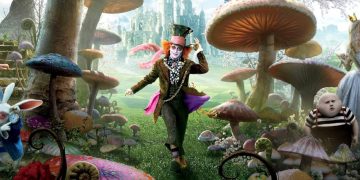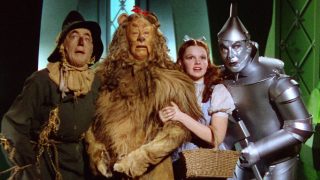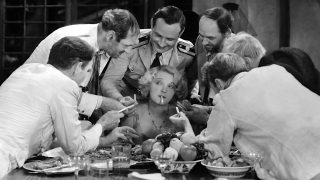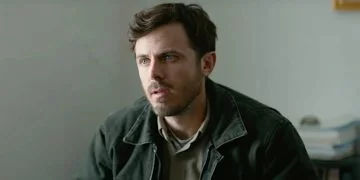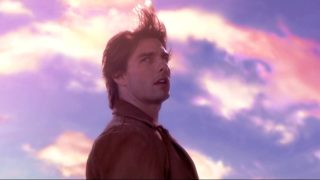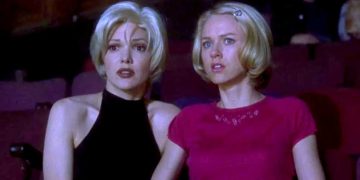Have you ever had a dream where you woke up and thought: "Hey, that would make a great movie!"? Well, sometimes filmmakers go through that same thing—and, luckily, some have actually made such movies.
Along the same vein, artists often use meditation to tap into their subconscious mind's dream world to mine their thoughts for creative inspiration. (One classic example of this is Salvador Dali!)
Here are our picks for the best movies that were actually inspired by dreams and meditation, which you can certainly tell in retrospect by how strange and unusual their premises are.
10. Waking Life (2001)
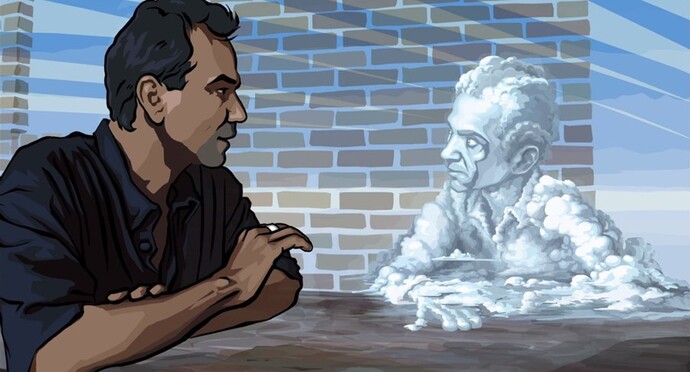
Directed by Richard Linklater
Starring Wiley Wiggins, Ethan Hawke, Julie Delpy
Animation, Drama, Fantasy (1h 39m)
Where better to find the answers to life's biggest questions than in the world of dreams? That's the case in Waking Life.
Richard Linklater's experimental animation isn't quite like the rest of his movies, though it does feature familiar actors like Ethan Hawke (reprising his role from Before Sunrise alongside Julie Delpy).
The deeply philosophical film follows a young man through different dreams and planes of consciousness, which makes sense since Linklater was inspired by dreams—or, more specifically, lucid dreaming (which the director claims to have naturally done for most of his life).
The use of rotoscoping—a technique where live-action footage is traced over—visually blurs the landscape of the protagonist's ethereal existence, resulting in one cool and critically acclaimed movie!
9. Stuart Little (1999)
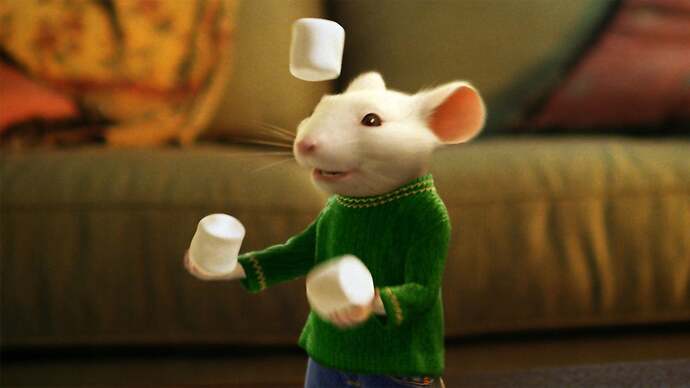
Directed by Rob Minkoff
Starring Michael J. Fox, Geena Davis, Hugh Laurie
Adventure, Comedy, Family (1h 24m)
E.B. White may have written his best-selling novel about an anthropomorphic mouse named Stuart in 1945, but he actually came up with the idea two decades prior.
While dozing off on a train, the author dreamed of a boy-like mouse who came to be Stuart. After waking up, White kept the story stashed away to tell his nieces and nephews later on.
However, those short stories went beyond fireside recitations—White's book went on to become a Hollywood movie in 1999.
The hit kids' film starred Michael J. Fox as the voice of the orphan mouse, who grows up with a human family in New York City. A sequel to Stuart Little was made in 2002, and a third (less successful) installment was released in 2005. There are even rumors of a future reboot.
8. Dr. Jekyll and Mr. Hyde (1941)
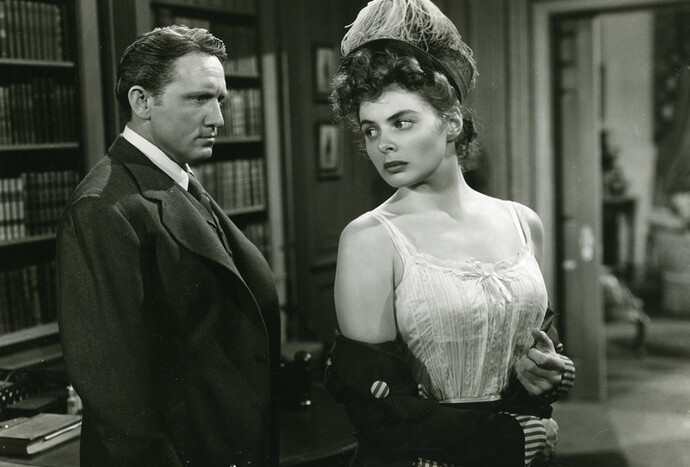
Directed by Victor Fleming
Starring Spencer Tracy, Ingrid Bergman, Lana Turner
Drama, Horror, Sci-Fi (1h 53m)
Strange Case of Dr. Jekyll and Mr. Hyde was published in 1886 by Scottish author Robert Louis Stevenson, and that story has since become engrained in English culture and language.
The Gothic novel set the foundation for the split-character archetype—one side good and one side evil—which Stan Lee cited as his inspiration for The Hulk. But what inspired Stevenson? His dreams, of course!
The writer always had a fascination for multiple personalities, but it wasn't until he had a nightmare (or, as he put it, "a fine bogey tale") about Dr. Jekyll and his monstrous alter-ego that he took pen to paper.
Since Stevenson wrote the infamous novel—in under two weeks while bedridden with tuberculosis—it has had multiple cinematic adaptations. We most like the black-and-white horror by Victor Fleming, who also directed the classics Gone With the Wind and The Wizard of Oz.
7. The Terminator (1984)
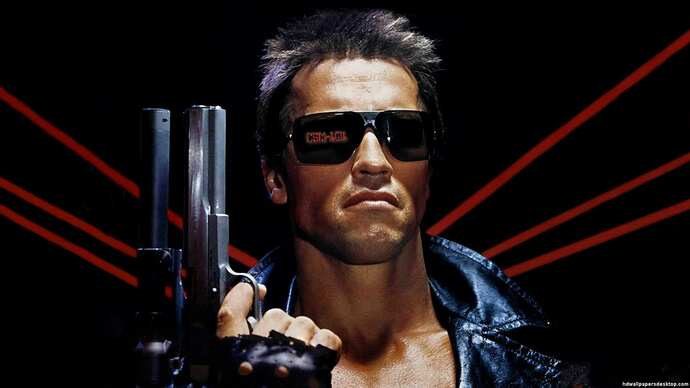
Directed by James Cameron
Starring Arnold Schwarzenegger, Linda Hamilton, Michael Biehn
Action, Sci-Fi (1h 47m)
Illness can often send people into a disorientating fever, shifting between dreams and reality as the days merge together. For creatives, this can be a sort of blessing—unpleasant as the experience may be—because the subconscious mind brings about fascinating new ideas.
James Cameron, for example, suffered greatly with the flu while filming Piranha II: The Spawning in 1981. Fevered nightmares plagued Cameron in his hotel in Rome, which added to the discombobulated feeling of being "in a foreign city by [himself] and [feeling] dissociated from humanity."
The bizarre imagery that Cameron saw was a chrome torso dragging itself toward him with knives, which he scribbled down as a sketch of a metallic assassin: Arnold Schwarzenegger's Terminator.
6. Twilight (2008)
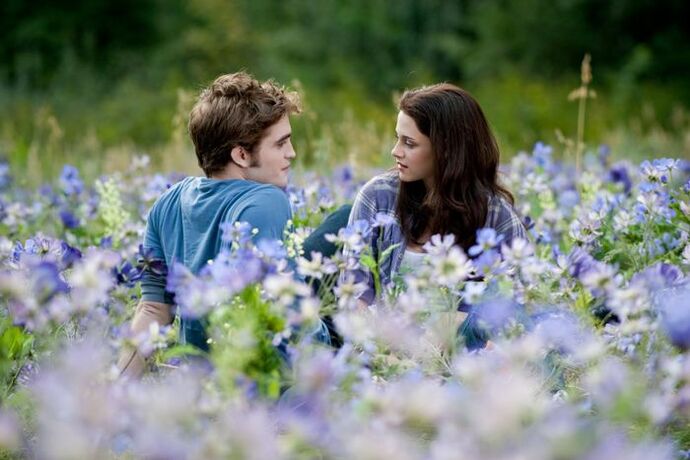
Directed by Catherine Hardwicke
Starring Kristen Stewart, Robert Pattinson, Billy Burke
Drama, Fantasy, Romance (2h 2m)
The Twilight franchise might not sit up there among the greatest films of all time, but it did become a huge cult icon for teenagers.
Originally a book series published between 2005 and 2020, writer Stephanie Meyer first conceived the vampire drama in a dream. The 35-year-old mom explained in an interview:
"It was two people in kind of a little circular meadow with really bright sunlight, and one of them was a beautiful, sparkly boy and one was just a girl who was human and normal, and they were having this conversation.
"The boy was a vampire, which is so bizarre that I'd be dreaming about vampires, and he was trying to explain to her how much he cared about her and yet at the same time how much he wanted to kill her."
This later became Chapter 13 of Twilight and a recurring motif throughout the popular film saga.
5. Misery (1990)
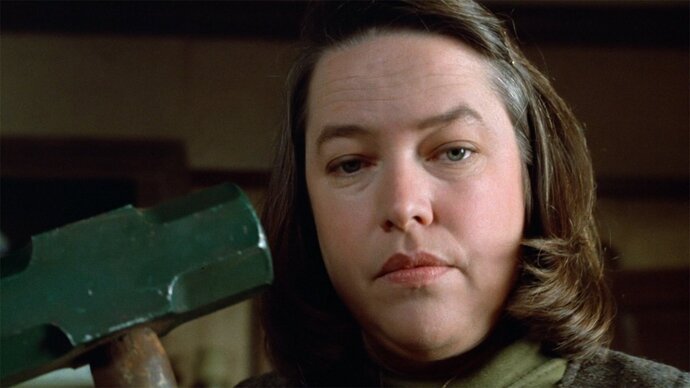
Directed by Rob Reiner
Starring James Caan, Kathy Bates, Richard Farnsworth
Drama, Thriller (1h 47m)
Stephen King has produced 64 novels and over 200 short stories over his career, but where does he get all those ideas from?
Well, a handful of them were borne out of dreams, such as 2001's Dreamcatcher and 1987's Misery. The latter got a big-screen adaptation in 1990, starring Kathy Bates in her knockout performance as an obsessed, homicidal superfan.
The horror flick resembles King's nightmares—more specifically, one he had while sleeping on an airplane. King was flying over to a hotel in England and dreamed of a woman who kept a writer as prisoner, torturing him and feeding his remains to her pig.
By the time he arrived at the hotel, he'd already written the first fifty pages. No wonder he's able to publish so many books!
4. Frankenstein (1931)
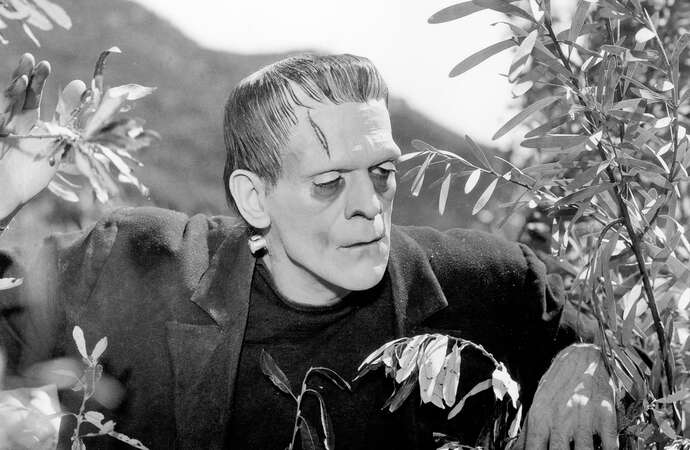
Directed by James Whale
Starring Colin Clive, Mae Clarke, Boris Karloff
Drama, Horror, Sci-Fi (1h 10m)
Another dream-inspired Gothic novel, this time written by Mary Shelley in 1818. Originally titled The Modern Prometheus, Frankenstein tells the world-renowned tale of a mad scientist who creates a monster out of electricity and mismatched human limbs.
At just 18 years old, Shelley was asked to write a ghost story—along with Lord Byron's other guests—for after the party when they'd all been reciting German ghost stories for entertainment.
Writer's block caused Shelley great anxiety, until one night in her dreams she "saw the hideous phantasm of a man stretched out, and then, on the working of some powerful engine, show signs of life."
Frankenstein's monster has been brought to life dozens of time on film since 1910, with the hideous creature with a heart of gold being adapted, reimagined, animated, and parodied numerous times.
But no attempt has been better than the one by Boris Karloff in James Whale's pre-Code sci-fi horror Frankenstein!
3. Sophie's Choice (1982)
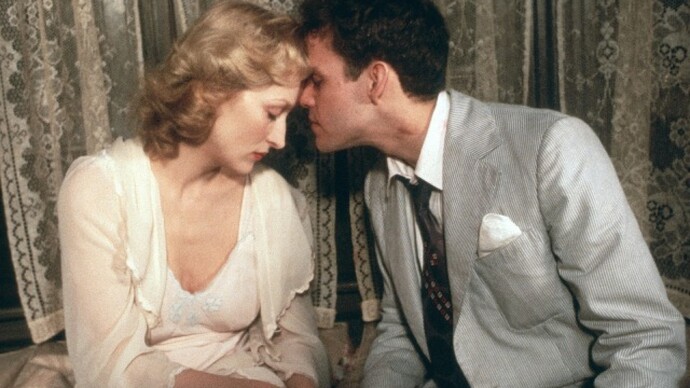
Directed by Alan J. Pakula
Starring Meryl Streep, Kevin Kline, Peter MacNicol
Drama, Romance (2h 30m)
Midway through the 1970s, William Styron was stuck on ideas for his new book, knowing only that he wanted it to take place during the Holocaust.
Then, he had a dream about a beautiful girl called Sophie—named after some figure in his distant memory—who had a faint tattoo showing beneath her summer dress. That tattoo would eventually become the mark of her time spent in Auschwitz.
The tragic story takes us back to Sophie's past, where she was forced to choose between sending her son or her daughter to the gas chamber.
The award-winning novel was made into a film in 1982, starring Meryl Streep at the dawn of her prestigious career. Though it was controversial for how it framed Styron's views on the Holocaust, Sophie's Choice was praised by critics and was nominated for five Academy Awards.
2. Inception (2010)
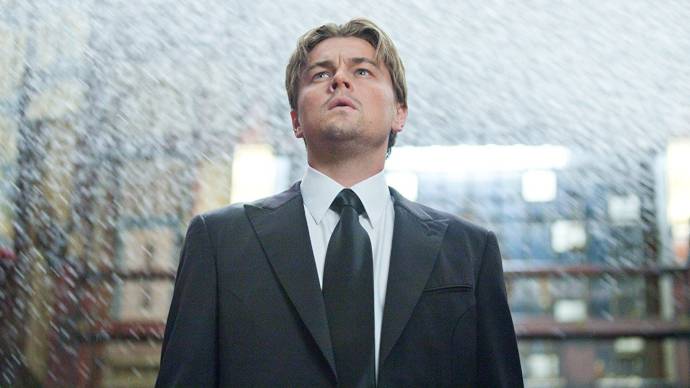
Directed by Christopher Nolan
Starring Leonardo DiCaprio, Joseph Gordon-Levitt, Elliot Page
Action, Adventure, Sci-Fi (2h 28m)
It's no surprise that a film about dreams originated as a dream. Director Christopher Nolan is known for his trademark themes of time travel and complex narratives, and one of his most beloved works is Inception.
With its crazy premise and an all-star cast that includes Leonardo DiCaprio, Marion Cotillard, Elliot Page, Tom Hardy, and Joseph Gordon-Levitt, Inception made waves upon release.
The sci-fi action flick tracks a team of "extractors" across different dream worlds, which all operate at different speeds. One minute in one dream can be one year in the next, so it's a dangerous task to enter someone's subconscious—which is what the gang is tasked with doing.
For a story as intricately layered as Inception, Nolan turned to his own lucid experiences. Fascinated by the way he could move in and out of dreams with differing levels of awareness, the filmmaker had been piecing the film together since he was 16 years old.
Nolan drafted the first treatment with the idea of a horror movie about "dream stealers," which later turned into a heist film, and eventually the masterpiece we see today.
1. Most of David Lynch's Filmography
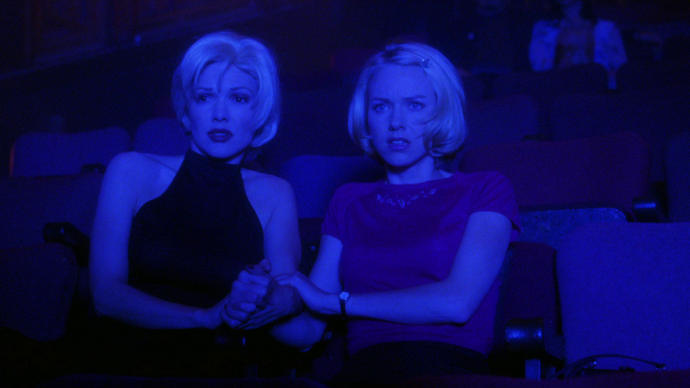
Director Martin Scorsese has openly talked about his use of transcendental meditation to keep a level head during chaotic productions. Similarly, David Lynch hasn't missed a single meditation session (performed twice a day) since 1973.
However, David Lynch's connection to the spiritual realm isn't just a way to clear his his mind. It's a way to fill it with new ideas—and that's why the world of David Lynch is full of surreal and nightmarish imagery.
His films often involve weird creatures, uncanny set designs, and creepy characters. Indeed, the auteur is known for his wholly unique vision, wowing critics with films like 1986's Blue Velvet, 2001's Mulholland Drive, and the Twin Peaks TV series (1990–2017).
But where does David Lynch get his outlandish ideas? A meditative state of awareness and heightened creativity, in which the director allows ideas to come to him—not the other way around.

